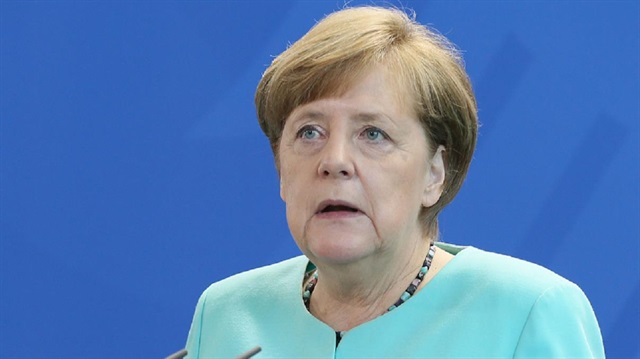
Germany, supporting the PKK and FETÖ terrorist organizations at every turn, is confronted with losing an important ally due to its policies under terror lobbies’ pressures
German politics surrendered to terrorist lobbies. The Kurdistan Workers’ Party (PKK) and Fetullah Terror Organization (FETÖ) lobbies have an increasing influence over politics, and steps taken under pressure although they are to the disadvantage of the country and the policies threaten Germany’s interests. This was clear during German Chancellor Angela Merkel’s visits to Turkey. Merkel, who was criticized that “this visit will be to Erdoğan's advantage” before each visit to Turkey, makes great effort to maintain relations with Turkey behind closed doors, and has to paint an exact opposite picture in front of public.
This indecisive attitude can be observed in the way Germany cannot impose precise sanctions in spite of trenchant statements after the recent crisis. Today, Germany is evaluated as confronting the risk of losing an important ally due to the pressures of terrorist lobbies that they raised to control Turkey for years. Berlin, because of its indecisive attitude, took a heavy toll after losing its military presence in İncirlik.

Germany’s policies about Turkey have long been under pressure. While Turkey launches counterterrorism operations, the biggest objections to these operations comes from Germany, where PKK lobbies are strongest in Europe. When the Armenian proposal is discussed, the German Parliament comes into play. While Germany tries to take measures against Syrian immigrants through partnership with Turkey, German politicians are suppressed by anti-Turkey terrorist lobbies, hence, Germany cannot realize its plans in favor its interests.
FETÖ members have recently settled in Germany. Terrorist groups grew stronger in Germany, which is the pillar of support for anti-Turkey PKK, FETÖ and Armenian lobbies. The new homeland choice for those who cannot get along in Turkey is now Germany. These terrorist lobbies, which gained great strength today, steer Germany’s politics and foreign policies.
Germany has, for many years, been sheltering the segments and groups that terrorize Turkey. The country started to shelter the PKK terror organization and its so-called leaders years ago, aspiring to control Turkey. Numerous terrorist leaders made their plans on Turkey in Germany or in meetings where German authorities were present. Germany has denied to deliver those terrorists who took shelter in its borders, by violating international law and ignoring the agreements. Germany is now confronted with the risk of losing an important ally and NATO partner, in case the country maintains its policy under pressure.
The PKK is listed as a terrorist organization by Turkey, the European Union and the United States.
The PKK has been conducting armed violence in the southeastern part of Turkey since 1984. More than 40,000 people, mostly civilians, have been killed in the three-decade long conflict.
FETÖ terrorists are led by U.S.-based Fetullah Gülen, who orchestrated Turkey's July 15 coup attempt and is the mastermind behind a long-running campaign to overthrow the state through the infiltration of Turkish institutions, particularly the military, police and judiciary.
Since the failed coup, operations have been ongoing in the military, police and judiciary as well as in state institutions across the country to arrest suspects with alleged links to FETÖ.
The terrorist group is also known for its network comprised of hundreds of schools around the world.




